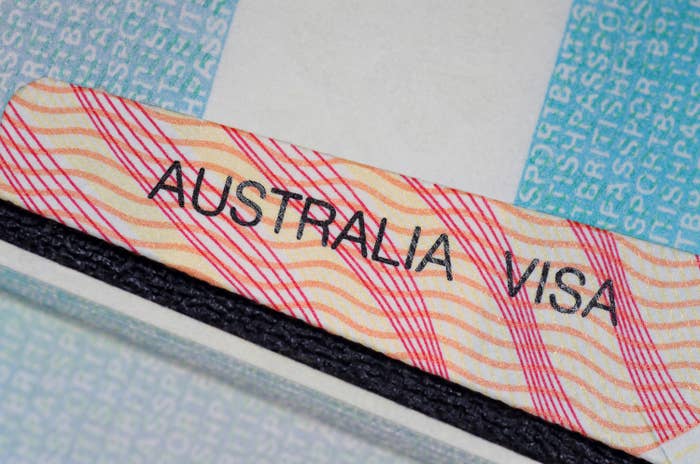
Gay asylum seekers seeking protection in Australia were asked by government officials if they could pretend to be straight to avoid persecution in their home countries.
The questioning by Australian immigration officers is revealed in a 2018 internal review of 21 interviews with people seeking asylum because of their sexual orientation or gender identity, which BuzzFeed News obtained under freedom of information laws.
In four of the 21 randomly-chosen interviews, asylum seekers were asked whether they could be discreet about their homosexuality to avoid harm if they were returned to their home country.
Three had claimed they were discreet about their sexuality in Australia as well as their home countries. Their interviewers then asked whether they could continue to be discreet — effectively, if they could stay in the closet — to avoid harm if they were returned to their home countries.
In the fourth case, an openly gay Iranian man was asked how he would have to live in Iran, and whether he would have to be discreet or could live openly as a gay man.
In 2003, deciding on a case of two men who claimed protection because they were gay and in a relationship but were not out in Bangladesh, Australia's highest court ruled that sexuality-based claims could not be dismissed simply because a person could act discreetly in their home country. Instead, officers and tribunals are meant to ask what would happen if a person lived openly, and whether they have remained in the closet because of a genuine risk of harm.
The review showed that "some 20% of LGBT applicants are still not getting a fair hearing of their claims", Equality Australia's legal director Ghassan Kassisieh told BuzzFeed News.
"Seventeen years after the High Court ruled that applicants must not be expected to remain discreet about their sexuality in order to avoid persecution, 4 out of 21 interviewers seem to have continued down this problematic line of questioning," he said.
"Worse still, applicants who say they remain heterosexually married to avoid bringing shame on themselves and their families, are simply not believed to be gay."
The review found that interviewers in two cases seemed to focus on the fact that the applicants were married to people of the opposite sex and had stayed married in Australia, suggesting this lessened their credibility. In both interviews, the asylum seeker stated that the marriage was a facade, but both claims were rejected.
"If the applicant is married, the delegates should investigate how the applicant perceived the relationship...[marriage] does not mean that the applicant is not homosexual as social pressures may have forced them to conform to cultural norms," wrote the review's authors.
In three cases, officials asked questions that were inappropriately personal, or that misunderstood how sexuality might reasonably be expressed or hidden. About an hour into one interview, the immigration officer asked the applicant: "Why do you think you are gay?"
In another interview, the officer looked at the asylum seeker's phone for apps and messages for evidence he was gay, and asked detailed questions about the person's dating profiles. That man's claim was refused.
"Assessment of LGBTI claims can be difficult, as the evidence is usually limited to the applicant's personal account," the review stated. "It is important that the questions asked during the interview assess the credibility of the LGBTI claims, but are also sensitive and not overly intrusive."
The review also found that in four of the interviews, it was unclear whether the officers had properly prepared for the interview. In all of the interviews, officers used appropriate terminology.
The review only assessed the interviews, and did not look at the reasoning behind claims being accepted or rejected.
Three months after the review was completed in January 2018, the department issued new instructions for its officers on how to conduct these interviews, which Kassisieh described as "useful". The detailed document includes advice appropriate terminology, avoiding asking for details of sexual activity, and avoiding stereotypical assumptions of LGBTI people.
BuzzFeed News has previously reported on the 2012 interviews of two Bangladeshi men who were asked intrusive questions, such as whether they drank each other's semen and whether each of them climaxed during a particular encounter.
The interviews in the review happened between Nov. 1, 2016 and Aug. 1, 2017.
Refugee claimants in Australia are interviewed by a single officer of the Department of Home Affairs, who receives intensive training when they commence their work but then operate independently. They can also attend later training sessions, such as an April 2016 session referred to in the review, run by the Organization for Refuge, Asylum and Migration, which was attended by Sydney and Melbourne decision makers.
"Guidelines are only good if people follow them," Kassisieh said. "While the department must be commended for its guidelines, training and quality assurance processes, the results of its audit show that more needs to be done to ensure every applicant is given a fair hearing no matter who is making the decision."
